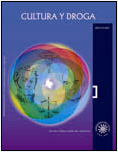Authors
Abstract
This article approaches the topic of the bioessay, both from the historical and the experiential viewpoints, as a way for exploration and knowledge in the vast and intricate field of entheogens. Also it will be shown how it is possible to establish a bridge between them and philosophy, specifically the phenomenology, given the peculiar nature of this type of substances. Thus, a window is open from which, as incorporeal eyes, we can take a look inside. Finally, put forward, the phenomenological bioessay as a methodological proposal in the field of sacred plants.
Keywords
References
Escohotado, Antonio. (2005). Historia general de las drogas. 7 ed. Madrid: Espasa Calpe. Hofmann, Albert. (1997). LSD. Cómo descubrí el ácido y qué pasó después en el mundo. 3 ed. Barcelona: Gedisa.
Hofmann, Albert et al. (1985). Teonanacatl. Hongos alucinógenos de Europa y América del Norte. Madrid: Editorial Swan, 1985.
Husserl, Edmund. (1991). La crisis de las ciencias europeas y la fenomenología trascendental. Barcelona: Crítica.
________. (1995) Ideas relativas a una fenomenología pura y una filosofía fenomenológica. México: FCE.
Jünger, Ernst. (2000). Acercamiento. Drogas y ebriedad. Barcelona: Tusquets.
«LSD: Completely personal». Speech delivered to the 1996 Worlds of Consciousness Conference in Heidelberg, Germany. Translated from the original German (LSD Ganz Persönlich) by J. Ott.
MAPS (Multidisciplinary Association for Psychedelic Studies). (1996). Bulletin, VI(3), 46-52. Disponible en: www.MAPS.org/Bulletins.
Océano. Langenscheidt. Compact Diccionario Didáctico Alemán.
Ott, Jonathan. (1996). Pharmacotheon: Drogas enteogénicas, sus fuentes vegetales y su historia. Barcelona: Liebre de Marzo.
________. (1998). Pharmacophilia o los Paraísos naturales. Barcelona: Phantastica.
Rätsch, Christian. Bewuβtsein durch Zuberpflanzen. Disponible en: www.christian-raetsch.de/Artikel.

 PDF (Español)
PDF (Español)
 FLIP
FLIP

















